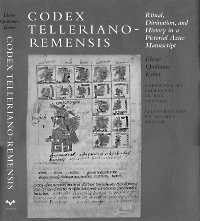The Road to Publication
The University of Texas Press
By Clay Smith, Fri., Aug. 29, 1997
|
|
"Bureaucracy" may be one of the most misused, overused words in American English, and the University of Texas at Austin is sometimes thought of as the bureaucracy to out-evil all other local bureaucracies.
Perhaps the word is only fair to describe the monolithic organization that is The University. Enter certain of its parts, however, and one is apt to discover vibrant, driven people spurred on by, yes, the pursuit of knowledge and the desire to disseminate the academic word. The same is true of the University of Texas Press, located a baseball-throw's distance on the east side of I-35 from Disch-Falk Field.
Unlike the murky term "bureaucracy," UT Press is a systematized organization, one that writer David E. Wilkins, whose American Indian Sovereignty and the U.S. Supreme Court: The Masking of Justice is being published by the Press this fall, calls "a sophisticated system." Of course, systematization is a virtual requirement for a non-profit organization that employs 50 people and must break even annually while publishing books for small, target audiences.
In the academic and artistic communities, UT Press has a stellar reputation -- Peter Givler, executive director of the Association of American University Presses (AAUP), gives a sense of UT Press' national standing by placing it at "the large end" of the medium-sized university presses. The Press has a stellar reputation that reaches beyond its best-known publishing discipline, Latin American Studies. Of the individuals interviewed, only one had an even minor quibble about the Press, and that complaint was based on the perception that the Press doesn't spend enough money marketing its titles (a typical complaint among authors), though Louise Saxon, now the Press' development officer (who previously spent five years in the marketing department), confidently and convincingly asserts that each of the Press' titles has its "year in the sun."
To attain that light, a potential book has to leap through a system of hurdles so complex and thorough that only the most apt and truly necessary titles survive. As assistant director and executive editor, Theresa May keeps only about 5% of all the solicited and unsolicited projects deposited in her mailbox daily. She tells potential authors that they have "about 20 seconds" to grab her attention before their proposal lands in the mail room reject bin during her daily morning ritual of separating the wheat from the chaff. May's confidence is the result of some 17 years' experience with the Press; she knows what makes a potential title suitable for UT Press and UT Press alone. Most of the Latin American titles go through May's desk while Jim Burr and Shannon Davies, two other "sponsoring" or acquisitions editors, have under their purview topics as far-ranging as classics/antiquity, architecture, environmental studies, film and media studies, photography, regional humanities (Texas and the Southwest), cookbooks, and nature/scientific texts.
|
|  |
Between them, these three editors make collective decisions about whether a potential book should be pursued, recommended to another press, or rejected, as a recent editorial meeting demonstrated. At that meeting, May, Burr, and Davies (UT Press director Joanna Hitchcock would also have been present had she not been on vacation) took turns briefly describing proposals that had found their way to the editors' desks, how they got there, and what the various editors thought about the suitability of the titles for UT Press. It speaks well of the virtually seamlessly meshed personalities at the Press that editors at times exhibit hesitance even in their own fields of expertise to dismiss a potential title without asking the opinion of the other editors. As May puts it, and as she tells new editors at the Press, acquisitions editors need to be "60 miles wide and an inch deep."
After passing muster at this small editorial meeting, the project then goes before two academic readers. While Theresa May might be exaggerating when she describes the "width" and "depth" of a good UT Press editor, she's not exaggerating by much; with so many proposals from so many different fields fleeting across their desks, the editors simply do not have the time to become well-versed in all the particulars of an author's viewpoint and how that viewpoint will be accepted by the academic community. So, an editor gains insight from an academic reader, potentially the most prickly process amidst all this meeting and deciding and conferring about books.
All sorts of subtle politics threaten to enter into the academic reading process, but UT Press succeeds exceptionally well at establishing good rapport with its academic contacts and at resisting outside pressure to choose biased readers. This tendency most likely springs from the top down as Press director Hitchcock seems especially well-versed in the ins and outs of finding reliable, unbiased readers; after 15 years as an editor of every imaginable discipline in the humanities at Princeton University Press before coming to UT, Hitchcock had plenty of practice honing her skills.
If the academic readers respond favorably to the project, it then has to meet the approval of the Faculty Advisory Council, a group of eight to 10 academics appointed by the UT President. Lastly, at a meeting the editors call the "big" council meeting, staff from the rights and permissions department, the editorial, design and production, and marketing and business departments meet to ensure the Press is of one mind about the feasibility of the proposal. And if the title makes it past this point? Well, now it just has to be written, completed, or revised.
The Press has indeed established itself as a publishing leader in Latin American studies, but some of this publishing season's titles might catch you off guard. Art books like Carl Rice Embrey: A Retrospective, Michael Ray Charles, 1989-1997: An American Artist's Work, Hanif Kureishi: Postcolonial Storyteller, The Passion of David Lynch: Wild at Heart in Hollywood, and Blood in the Arena: The Spectacle of Roman Power are all being published by the Press this fall and winter and are proof of the Press' determination (and ability) to become known for publishing excellence in disciplines other than just Latin American studies. At least the National Endowment for the Humanities thinks the Press is achieving that goal, and thus awarded the Press one of only two NEH Challenge grants bestowed to scholarly presses (University of Kentucky Press is the other) in fiscal year 1997. In his December 1996 letter to Joanna Hitchcock announcing the Press' award, NEH chairman Sheldon Hackney mentioned the rigorous peer review process the Press had to go through to be considered for the award, and noted that those peers particularly considered the Press' "strengths in Latin American studies and Classics and its rigorous vetting standards." These are aspects of the Press for which it has been known for some time, but as can be seen from the titles cited above, the Press is embracing the new, and, at times, the expensive: Art titles like Keith Carter: Photographs, Twenty-Five Years and Image and Memory: Photography From Latin America, 1866-1994 cost a pretty penny to produce. What the NEH grant means is that the Press needs to raise $750,000 by the year 2000 to receive $250,000 from the NEH. The resulting $1 million will be used as a permanent fund to strengthen the Press' already strong humanities publishing program. Louise Saxon reports that already the Press is "well ahead of schedule" in raising the $750,000.
UT Press has a reputation that far exceeds its size among the 113 university presses that belong to AAUP (UT Press director Joanna Hitchcock presently serves as the organization's honorary president). It is also a reputation that belies the relatively brief existence of the Press in comparison to other, longer-established university presses. In 1993, one year after she had joined the Press, Hitchcock gave a brief talk to Learning Activities for Mature People about the history of the University of Texas Press, and began thus: "When I told my predecessor Jack Kyle that I was to talk to you for an hour on the history of the Press, he replied: `It doesn't take that long.'"
It's the kind of self-effacing humor one wouldn't imagine emerging from the dark recesses of a bureaucratic organization. It's the kind of humor most all of UT Press staff uses to ease the tension of what can often, even (or especially) in academia, be a cutthroat business. It's humor that is harmoniously blended with the reputation the Press must live up to each publishing season, a reputation that corroborates the observation of Bill Wittliff, editor of the Wittliff Gallery of Southwestern and Mexican Photography Series, who simply offers that "It's a big responsibility to put a book out into the world."










